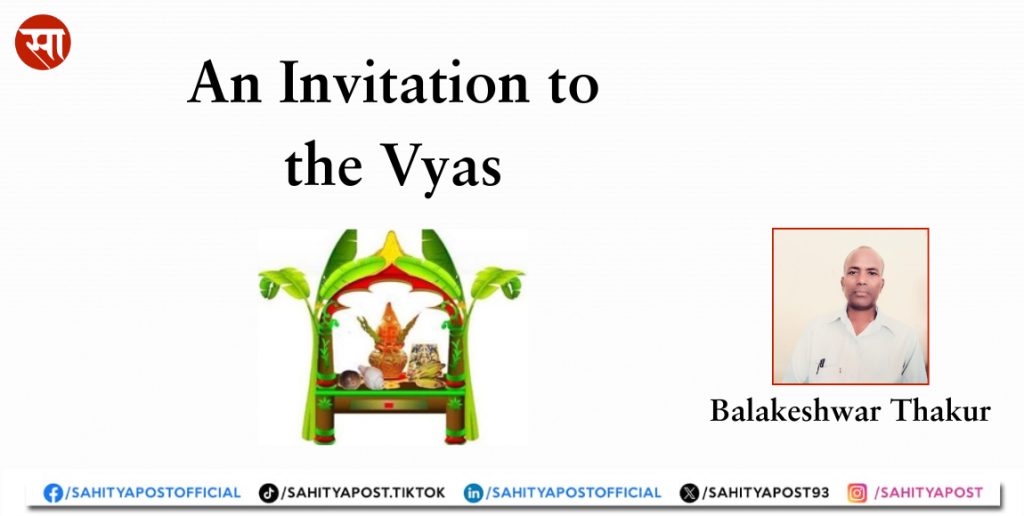Balakeshwar Thakur
16 falgun was the auspicious day when Shyambabu with his family would move to his newly built home, the priest had advised him consulting the almanac.
Some close relatives like his in-laws had already arrived a day earlier with a view to gracing the occasion of the puja and other events. Shyambabu was sitting and chatting with his guests in the evening when his wife, veiling her head and face a little, walked up and spoke to him that they would go stealthily to a nook outside the settlement and first make an earnest appeal to the Vyas for accepting their invite to the dinner party they had planned for the following evening.
“What, Vyas!” he jerked out.
“The jackal;” she replied, looking him in the eyes. She narrated that people had a practice to first of all invite the jackal, who they call “Vyas ji” out of deep reverence, to the dinner party they would give at taking up residence in a new home. The guests nodded to her in agreement.
Yet Shyambabu was puzzled;it all seemed quite incoherent to a linguist like him who had a PhD from a renowned university in the USA. He was so proud of his knowledge of linguistics, and had professed in his classes: Animals communicate but a little. He would have hardly consented but for his pretty wife who was his eleven years junior.
Sunaina, who had lived amid village milieus and knew all about societal ways, asked Shyambabu to take a weeding hook and a betel nut, and she herself carried a glass of water. Both of them went out to the nook where she told him to weed out a square foot of the ground, sprinkle water over it and mop it. Just after that the nut was placed there as a mark of cordial invitation. Thereupon, the couple conjoined their palms and fingers and in absolute supplication prayed:
Gracious Vyas, we with our pure heart request you to kindly accept our cordial invitation to the simple dinner party we are throwing tomorrow evening at about this time on the occasion of settling in our hard-earned new home. We are going to bring you your dish here before our invitees partake of the feast.
Next day different courses were prepared and the puja of God Satyanarayana was finished in the evening. After that, Sunaina arranged all the courses on a banana leaf, placed the leaf on a brass plate and brought them to the nook, while Shyambabu carried a torch and baked earthen stoup with water in it. The ground was made holy again with the water and the meal and the water stoup were laid beside each other.With these ceremonies, the couple humbly invoked and prayed the Vyas that he relish half of each course and leave their halves for them in order to bless their dwelling. Intoning thus, they returned and the guests sat for their dinner.
Early next morning, the reputed linguist followed his wife like a child to the invitation site and, to their utter astonishment, discovered that their invitation was truly answered. A half of everything served on the leaf was tasted and the other half neatly left for the hosts, that is, for Sunaina and Shyambabu. Their eyes were rounded in wonder to find that nothing was either scattered or messed up.
Thrilled to bits, Sunaina beamed at her husband, the conceited linguist, and explained to him that the acceptance of the invitation was a prognosis of a happy abode.
She collected the left-overs and brought them to bury in their home.
Shyambabu pledged to revisit his linguistic theory,“Animals communicate but a little.”
(Balakeshwar Thakur is a retired Associate Professor of English at R.R. Multiple Campus, Janakpurdham. He can be reached at thakurbalkeshwar52@gmail.com)










